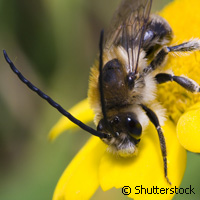TEEB study: make natural resources visible to global economy
We easily determine how important a role commodities play on our economy, but what about our planet's natural assets? The impact of a healthy environment on the global economy is huge but often goes unnoticed. Forests, soils, freshwater and coral reefs are just some of Earth's resources that help fuel our economy; insects such as bees contributed over EUR 150 billion to the economy annually through pollination, for example. However, the significance of many of these 'ecosystem services' often remains invisible, triggering species loss and ecosystem degradation, according to the latest Economics of Ecosystems and Biodiversity (TEEB) study, a major global initiative supported by the European Commission Environment Directorate-General (DG Environment). The study was presented at the Convention on Biological Diversity's 10th Conference of Parties (CBD COP10) session in Nagoya, Japan on 20 October. 'TEEB has documented not only the multi-trillion dollar importance to the global economy of the natural world, but the kinds of policy shifts and smart market mechanisms that can embed fresh thinking in a world beset by a rising raft of multiple challenges,' says Pavan Sukhdev, a banker who heads up the Green Economy Initiative of the United Nations Environment Programme (UNEP), and leader of the TEEB study. 'The good news is that many communities and countries are already seeing the potential of incorporating the value of nature into decision-making.' The study urges decision-makers to recognise the contribution nature makes to human livelihoods, health, security and culture at all levels and highlights the importance of introducing policy instruments and mechanisms to ensure nature's role in bolstering our economy. Among other things, the report recommends the rapid upgrading of the existing national accounts system to include the value of changes in natural capital stocks and ecosystem service flows, and drafting consistent physical accounts for forest stocks and ecosystem services for the development of new forest carbon mechanisms and incentives. 'TEEB's approach can reset the economic compass and herald a new era in which the value of nature's services is made visible and becomes an explicit part of policy and business decision-making,' Mr Sukhdev points out. 'Do nothing, and not only do we lose trillions worth of current and future benefits to society, we also further impoverish the poor and put future generations at risk. The time for ignoring biodiversity and persisting with conventional thinking regarding wealth creation and development is over. We must get on the path towards a green economy.' A number of countries, including India, are getting ready to implement the economic valuation of their natural capital as well as the value of nature's services in decision-making. It should be noted that the TEEB study is expected to continue with ongoing work on outreach and capacity building. The European Commission, for its part, is determined to keep working on these issues after COP 10. 'We intend to launch a study to examine more in detail the evidence available in an EU context and areas for implementation of the analyses developed by TEEB in our policies,' explains Janez Potocnik, the European Commissioner for the Environment. 'The Commission is also willing to support initiatives by other countries, in particular developing countries, to demonstrate the benefits and costs of investing in the management of biodiversity and ecosystem services. Notably, we plan to work in partnership with UNEP and UNDP [United Nations Development Programme] for supporting assessments in interested developing countries and making the links with economic sectors and development plans.'
Countries
India, Japan



